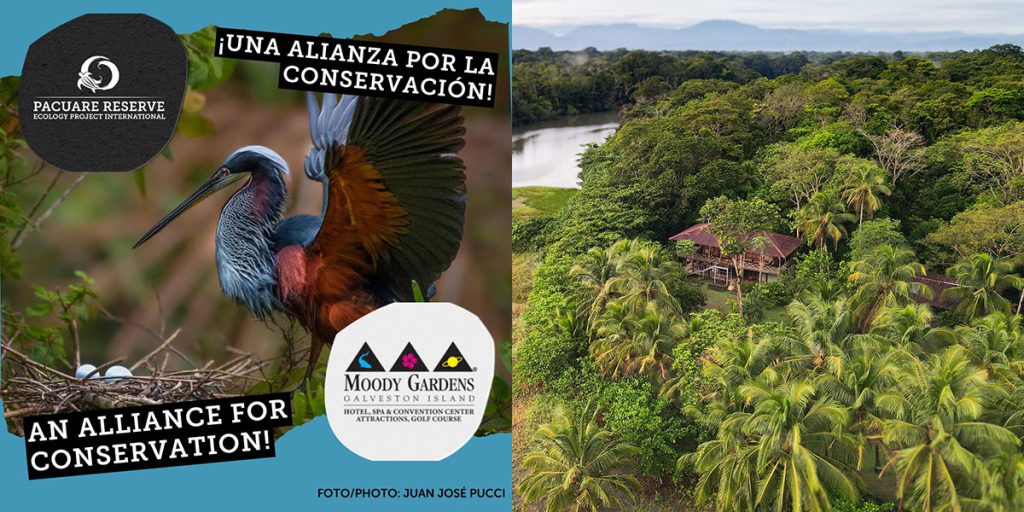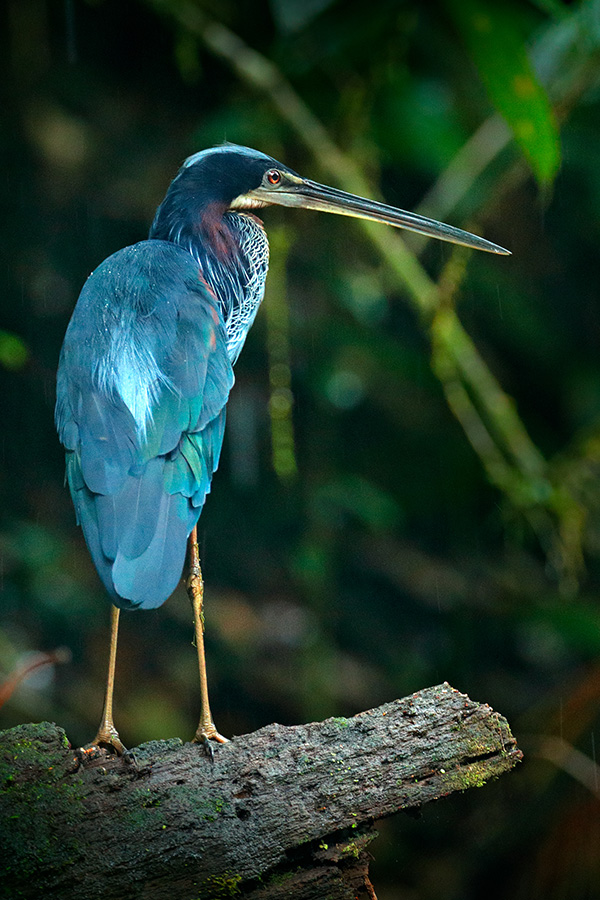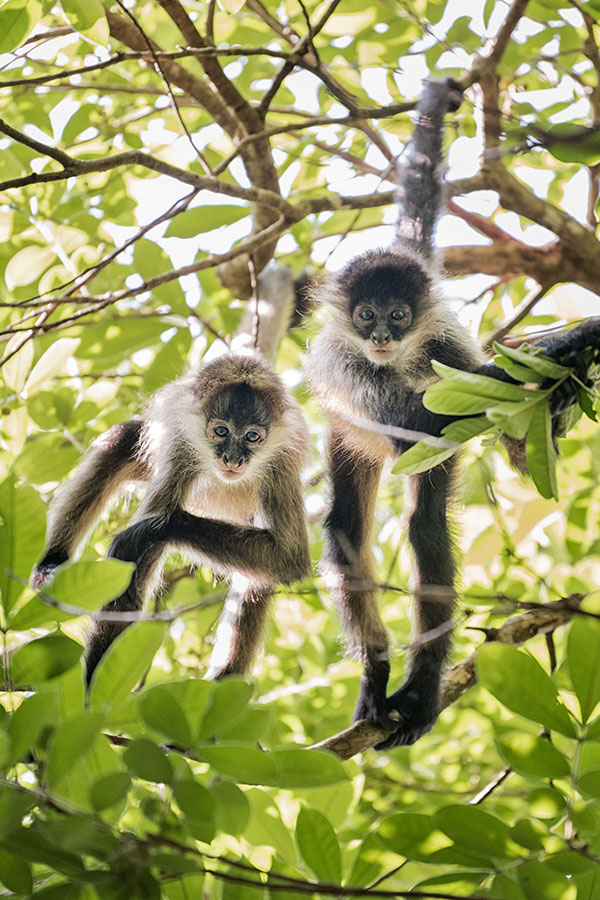Advancing Wildlife Protection and Environmental Education Through Global Collaboration

Moody Gardens is excited to announce a new partnership in conservation and education with Ecology Project International (EPI) and Pacuare Reserve. This collaboration underscores our shared commitment to protecting wildlife and promoting environmental awareness.

Our partnership with Pacuare Reserve includes funding assistance for conservation projects, staffing, and research. This support is vital for expanding the conservation efforts focused on the rare and magnificent Agami Heron, among other species.
This multi-year endeavor aligns with our mission of advancing conservation and education through successful international collaborations. One of our initial joint projects involves contributing to the construction of an observation blind for the majestic Agami Heron and hatcheries that protect sea turtle nests. We look forward to achieving great things together through joint research initiatives, educational programs, and impactful conservation projects.
Ecology Project International is a non-profit organization that fosters
place-based education partnerships among educators, experts, and students.
The work of EPI helps promotes scientific and community-based conservation, which addresses human and environmental threats.
Pacuare Reserve, managed by EPI, is home to a diverse range of wildlife, including three species of monkeys, 252 bird species, sea turtles, jaguars, and ocelots to name a few. The reserve, accessible only by boat, welcomes eco-tourists, students, and researchers to its dense jungle outpost.
Visitors can look forward to observing the flora and fauna first hand which can give them a real sense of the world in its natural environment. They can also participate in census collection and field research where they can observe and study species such as sea turtles, monkeys, felines and birds.
Additionally, they can learn about the diverse species and natural wonders of the reserve, with field assistants who explain scientific terms in simple, easy-to-understand language. For those unable to visit, donations are welcomed to support ecosystem protection, research, and education in the fight against climate change and biodiversity loss.

The Agami Heron, known for its vibrant breeding colors, is classified as Vulnerable due to habitat loss and other threats. Its small, scattered population makes it especially vulnerable. The research project at Pacuare Reserve is vital for protecting this species by studying its behavior, migration, and habitat needs, and sharing the findings with the international Agami Heron Working Group.
Research and conservation programs for the Agami Herons faces challenges, including the need for advanced technology like satellite transmitters and high-quality optical instruments. Moody Gardens is supporting Pacuare Reserve by helping design and place a blind to enhance the observation site. This will allow researchers, and participants to gather more accurate data and improve existing conservation strategies.
Together, Moody Gardens and EPI are confident that our joint efforts will lead to significant advancements in conservation and education for the Agami Heron and other species that can be found at Pacuare Reserve.
